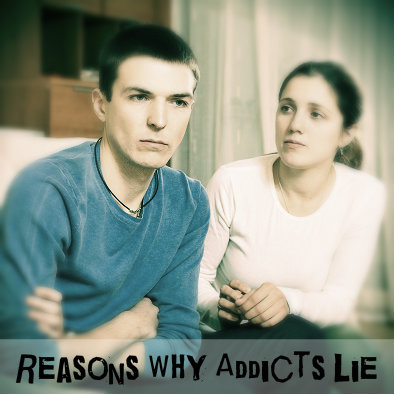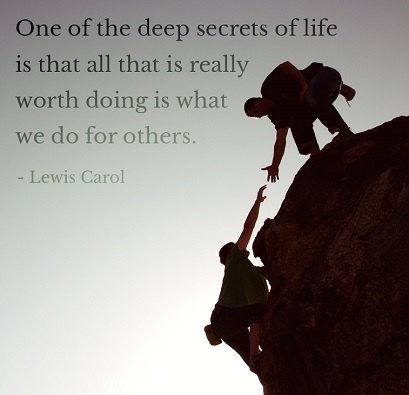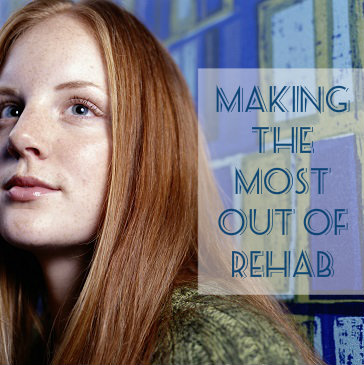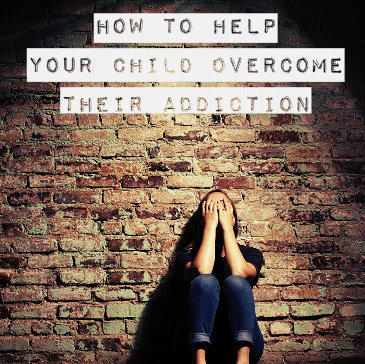19 Sep 2014
Speaking Up About Addiction
Addiction is often a silent disease. While no one is ashamed to talk about having arthritis or high blood pressure, the disease of addiction has long carried a terrible stigma. Those struggling with addiction are too often looked upon, by others as well as themselves, as weak, morally inferior and lacking in willpower. It is difficult to speak up and speak out about the challenges of this disease, but when we do, we can make real, positive changes. Only with awareness and recognition will more addicts get the help they need, while future addictions are prevented.
The Power Of Awareness
 The expression goes that knowledge is power and it carries a great amount of truth. When something like addiction remains shadowed and hidden, ignorance is allowed to grow. When someone knows nothing about addiction, the lies and misinformation seep in along with assumptions and prejudices. Someone who is ignorant about addiction may not be aware that a friend, coworker, or even a family member is struggling with the disease.
The expression goes that knowledge is power and it carries a great amount of truth. When something like addiction remains shadowed and hidden, ignorance is allowed to grow. When someone knows nothing about addiction, the lies and misinformation seep in along with assumptions and prejudices. Someone who is ignorant about addiction may not be aware that a friend, coworker, or even a family member is struggling with the disease.
Raising awareness about addiction can be powerful. Spreading the word about how damaging this disease can be is a great way to prevent people from abusing substances in the first place. Prevention is the best way to help spare people from the pain and suffering caused by addiction. Raising awareness can even help motivate other people to help make a difference. Even for those who never had an interest in drug use or drinking, learning more about addiction can inspire anyone to get involved with helping others.
Awareness can also make big changes over the long term. It might feel as if one person, or one small group, speaking up and talking about addiction makes little difference. The truth is that it can have a snowball effect. Your efforts to reach others inspire the next person, and the next person. When enough people start speaking up, lawmakers start to listen, as do organizations with the means to fund research and treatment. The act of speaking up, even by one person, can be powerful.
Sharing Stories Of Addiction
If you have been impacted by addiction, whether your own or someone else’s, sharing that story is one important way to speak out and raise awareness. The more we speak about addiction and the more we hear about it, the more it loses its mystery and stigma.
Several organizations encourage and host events that allow you to get your story out there:
- The National Council on Alcoholism and Drug Dependence has named September National Alcohol and Drug Addiction Recovery Month. This event encourages people to learn about addiction and recovery as well as treatment options.
- The Substance Abuse and Mental Health Services Administration supports October as National Substance Abuse Prevention Month and provides ideas and events for people to share their stories and to learn more about addiction.
- The U.S. Army supports veterans battling drug addiction by encouraging everyone to learn more about addiction, treatment and recovery. It also advocates for celebrating the successes of those who are in recovery and sober.
When it comes to a disease laden with stigma, the only way to banish the shame and ignorance is to speak up. If you have battled addiction, if you have seen a loved one laid low by this disease, or if you simply care about the issue, speak up, spread awareness and help others learn more about the disease of addiction!
Read Our Other Empowering And Inspirational Posts
Overcoming Addiction Is Worth It & So Are You! – Let Us Help You Take That First Step – Call Us Now!
18 Sep 2014
Why Addicts Lie
If you have an addict in your life you have been through some trying times. Your addict has a disease, but it’s a tricky one. She may cheat on you, lie, neglect you, steal from you or even hurt you. For those in close relationships with an addict, lying is one of the most hurtful behaviors to experience. You expect honesty in your intimate relationships, but addicts lie all the time.
Reasons Addicts Lie
 To help you cope with the lying and to learn to forgive and move past it, it helps to understand. Although it may not be right, there are real and valid reasons addicts lie.
To help you cope with the lying and to learn to forgive and move past it, it helps to understand. Although it may not be right, there are real and valid reasons addicts lie.
Addicts Lie To Avoid Confrontations
As you watched your loved one slide into addiction and ruin her life, you probably made numerous attempts to get her to stop. At times you may sound like a broken record and a nag. Maybe the issue has led to increased conflict. The stress of these confrontations is overwhelming and destructive for both of you. While you want to be honest, get the problem out in the open and find a solution, she just wants to avoid your hurt looks and anger. In order to get out of these conflicts and to avoid them, she will tell every lie imaginable.
Addicts Lie To Maintain The Addiction
Lies also help your addicted loved one to perpetuate her addiction. Most addicts are afraid to stop using for a number of reasons. They fear the idea of stopping because they feel like they need drugs or alcohol. The pain and discomfort of detoxing are scary and so is the possibility of failing. The idea of trying to live a sober life, and what that might be like, is even scarier. To keep the addiction going, your loved one will tell many lies. Lying becomes a tool for self-preservation.
Addicts Lie Because Of Shame
Addicts feel a great deal of shame. Although societal attitudes are very slowly changing, there is still a great deal of stigma attached to addiction. Many of us still view an addict as a person who is morally weak. It’s no wonder that addicts feel ashamed of what they do. Especially in sober moments, your loved one feels a huge sense of guilt, embarrassment and shame. Instead of working through these feelings, she uses more and then lies about it. She doesn’t want other people to realize just how badly she is doing.
Addicts Lie Because Of Denial
Denial is a powerful force and most addicts use it to cope with their problems. Despite all the evidence to the contrary, most addicts refuse to admit to having an addiction. They lie because they don’t want to make that admission. Your loved one probably thinks that she is different from other users. She can handle it, she says. She is in denial that her problem is no different from that of other addicts and as a result she lies to you and to herself.
As you cope with having a loved one addicted to drugs or alcohol, realize that her lying to you is not a personal attack. This is her coping mechanism and a rational part of the disease of addiction. This doesn’t mean that you should accept the lies. To help your loved one, you have to push through the falsehoods and ask her to face up to the truth. Don’t let her get away with lies when you catch them, but do provide ongoing love and support.
16 Sep 2014
How Not To Hold An Intervention
Holding an intervention is a powerful way you and others can show an addicted loved one how much you care and want to help. Many addicts have a difficult time facing up to the reality of their own problems. Denial is a strong force keeping most addicts from getting help.
The power of an intervention is in helping the addict see that those who love her are coming together to help. But an intervention can go terribly wrong even with the best of intentions. If you have no idea what to do, consider consulting an intervention specialist to guide you through the process.
Intervention Don’ts
If you decide to go it alone, be sure to avoid these common pitfalls:
- Waiting For The Addict To Hit Rock Bottom: A common misconception is that an addict has to be completely at the bottom before she will accept help. This simply isn’t true. Addicts have an illness, but they are still rational people. You can reason with your loved one and waiting for her to hit bottom is dangerous. If a one-on-one confrontation hasn’t worked, get ready for an intervention instead of waiting for the problem to get worse.
 A Spontaneous Intervention: An intervention should never be held on an impulse. While you don’t want to wait too long to hold one, you also need to take some time to plan it. Many things can go wrong during one of these events, but with proper planning you can be ready for any outcome. Get together with the people who will be participating to plan the event. Conduct dry runs and come up with solutions for all the possible negative outcomes you can imagine might happen.
A Spontaneous Intervention: An intervention should never be held on an impulse. While you don’t want to wait too long to hold one, you also need to take some time to plan it. Many things can go wrong during one of these events, but with proper planning you can be ready for any outcome. Get together with the people who will be participating to plan the event. Conduct dry runs and come up with solutions for all the possible negative outcomes you can imagine might happen.
- Failing To Consider The Timing: Timing is crucial when staging an intervention. One misconception is that an intervention should occur when the addict is under the influence so that you can demonstrate the reality of her situation. This is a terrible idea. Always time the intervention to coincide with the addict at her most alert and sober. She will be better able to think clearly and process what you are saying. This is also safer, as addicts can be volatile and even violent when intoxicated.
- Being Soft About Consequences: An intervention is a time to get real with your addicted loved one. The time is long gone for making excuses for her behaviors or enabling her bad choices. Make sure your intervention includes consequences and be serious about them. Each person participating should be prepared with consequences for the addict. These could include cutting off financial help, access to the kids or any other measure that is important to the addict. Whatever you do, don’t backtrack on these. Be firm and stick to them.
- Cutting Off Moral Support: Tough love is important, to an extent. You need to set firm consequences and stick by them, but your love and support should never waver. Never tell your loved one that you and the other participants will refuse to be there for her. Do cut off all the ways in which you enable her habit, but make sure she knows that you will be there to support her as she gets treatment.
Holding an intervention could be the most important thing you do for your addicted loved one, as long as you avoid these big mistakes. If the idea of hosting such an event makes you nervous, or you fear that your loved one could be violent and hurt someone, consult with a professional first. Safety is the most important aspect and if it is in jeopardy, the intervention is not worth the risk.
Now Learn How To Stage An Intervention. Successful Interventions Are Possible!
Call Us Now To Speak With A Qualified Addiction Counselor – We Are Here For You 24/7
28 Aug 2014
How To Make The Most Out Of Rehab
Overcoming addiction is one of the biggest challenges that many people face. With dedication, support and the treatment administered by caring professionals in a rehab facility, all addicts have the ability to get clean and to learn to stay sober over the long term. Going through a successful drug rehab program takes effort on the part of the caregivers and the addict. If you are considering getting into rehab to treat your addiction, make the most of it in order to be successful.
 What Happens In Drug Rehab?
What Happens In Drug Rehab?
Start by learning what will happen when you enter a rehab facility. By being prepared ahead of time, you will give yourself a head start in the process of getting well. As you search for a facility for your care, hopefully with the support of a loved one, ask questions about what will happen when you enter treatment. Most likely you can expect to go through a detox and then get one-on-one counseling as well as participate in group therapy and support sessions. Beyond these basics, different facilities may use different activities and will operate based on different philosophies. Find out what those are before you start your treatment program.
Maintain A Positive Attitude While In Rehab
Going through rehab will be hard work. At times it will feel like you are failing, but when you keep your attitude positive, you will be more likely to succeed. Enter the process understanding that there will be ups and downs, but prepared to work hard for your sobriety and your healing. Remember that the first part, your detox, will be the hardest part, but that it will get easier from there. What happens during detox is that the drugs and alcohol leave your body and you feel sick as a result. When the withdrawal symptoms fade, you will be feeling better and ready to make it through your treatment.
Keep Up A Support System After Leaving Rehab
Having a support system is one of the best ways to ensure your success at getting and staying sober. No one can do this alone, and, once you leave treatment, your professional caregivers will no longer be there for you every day. Make sure you have at least one or two friends or family members willing to support you through this process. Involve these people as much as you can during rehab. If they are allowed to visit or participate, encourage them to do so. Words of encouragement for someone in rehab can make a world of difference, as can the support of loved ones afterward.
Drug rehab success rates statistics tell us that most addicts will relapse at some point after treatment. This does not mean that rehab was a failure, but it may mean that you need a tune up. Sometimes, making the most of the process means going back to try again and to get more help. Just remember to stay positive, to keep your support system around you and to not get discouraged by a small setback.
Learn More About Repairing Broken Relationships While In Rehab – Is Rehab The Time To Fix Relationships Or Just Yourself?
Call Us Now To Learn More About Drug Rehab – We Are Here For You…You Are Worth It.
20 Aug 2014
How To Trust An Addict In Recovery
When you have had to cope with having a loved one struggle with addiction, you learn what it means to lose faith in someone. Addicts tend to abuse the trust of those they love when they’re wrapped up in their illness. Your loved one probably used and lied to you, let you down and maybe even stole from you. Now that he is in recovery, can you ever learn to trust him again? With effort and action on both sides, you can.
What Does It Mean To Trust?
 Trust is something that is at the heart of all healthy relationships. We often think of being trustworthy as being naïve, but that is not always the case. In order to trust anyone you have to be willing to take a leap of faith. It means making yourself vulnerable and opening yourself up to the possibility of being deceived and hurt. Trusting means letting go of fear, and that is never easy, but in order to have a real and loving relationship again, you have to put that fear aside and take the plunge.
Trust is something that is at the heart of all healthy relationships. We often think of being trustworthy as being naïve, but that is not always the case. In order to trust anyone you have to be willing to take a leap of faith. It means making yourself vulnerable and opening yourself up to the possibility of being deceived and hurt. Trusting means letting go of fear, and that is never easy, but in order to have a real and loving relationship again, you have to put that fear aside and take the plunge.
Opening up and letting go of fear take on whole new meanings when your trust is being given to someone who has already proven to be untrustworthy. Every bone in your body may be screaming that you cannot trust him again; all evidence might point to him not having earned your trust, and yet you still have a choice. Moving forward means building up trust once again. Without it you remain stagnant.
What Steps Will Lead To Trust?
Regaining trust when it has been lost means taking action. Most of that action needs to come from the recovering addict. He needs to do the legwork involved in proving that he is trustworthy once again. If he doesn’t yet realize this, you must sit him down for a serious talk about trust, moving forward, and what it will take on his part to earn your trust.
The first thing your recovering addict needs to do is acknowledge the ways in which he has broken your trust in the past. Explain to him how those instances hurt you and make it difficult for you to trust him now. The next step is action-oriented. For all the actions he took to break your trust, he must now do things that prove he is trustworthy. It takes many more instances of trustworthiness to bring back trust than it took deceitful actions to break down that trust, so make sure he is prepared to be patient and to be consistent.
An addict working toward regaining trust needs to always be aware of what he is doing that either earns or further erodes your trust. With every action he takes, or inaction sometimes, he needs to remember to do what he says he will do, be accountable for what he does or what he neglects to do, and always be reliable. He should be there when you need him, with no excuses.
What Can You Do To Trust Your Recovering Addict?
Most of the action needs to come from the addict earning back trust, but you also need to take steps toward opening yourself up again. Remember to be patient and take your time. Trust doesn’t happen overnight when you have endured so much betrayal. Don’t get frustrated with yourself if you continue to question him. Also be sure to be open and honest with your loved one. Trust cannot exist without communication. If you feel he has let you down in some way, don’t sulk. Talk to him about it. When both of you actively work toward rebuilding trust, you also rebuild your relationship—and that is worth the effort.
Check Out These 4 Recommended Tips To Cope When A Loved One Goes To Rehab
You’re married to the life of the party. You probably have a lot of fun with him. He loves going out with friends and entertains everyone with funny stories and goofy antics. Everyone loves him, right? But you see him the next day, worn out, hung over, unable to remember all the details of the previous night. Your husband or partner is paying a high price for his social status. Being the fun one is great, but if it is forced through the veil of drunkenness, he may have a serious problem with alcohol.
What Is An Alcoholic?
 The idea of your spouse as an alcoholic is scary. The odds are he isn’t one, but it is worth educating yourself about alcoholism if you suspect he drinks too much. Alcoholism, or alcohol dependence, is a true addiction and a serious disease. It takes a lot of drinking over a long period of time to become an alcoholic. If your husband binges and regrets it on weekends, he may not be an alcoholic — yet.
The idea of your spouse as an alcoholic is scary. The odds are he isn’t one, but it is worth educating yourself about alcoholism if you suspect he drinks too much. Alcoholism, or alcohol dependence, is a true addiction and a serious disease. It takes a lot of drinking over a long period of time to become an alcoholic. If your husband binges and regrets it on weekends, he may not be an alcoholic — yet.
One of the most characteristic attributes of alcohol addiction is the presence of withdrawal symptoms. These are real, physical symptoms that result when an alcoholic stops drinking. They include tremors, anxiety, nausea, sweating, insomnia, headaches, depression and fatigue. Alcoholics severely crave alcohol to make these symptoms go away.
What Is A Problem Drinker?
While your husband may not be an alcoholic, it does not mean that he doesn’t have a problem at all. He could be a problem drinker or an almost alcoholic. Problem drinking can often look very much like being the life of the party. A problem drinker may also be that tired working mom who needs a couple glasses of wine to relax at the end of the day, but then can’t sleep well or loses her cool with the kids. A problem drinker may be someone who has symptoms of depression and drinks to feel better instead of getting help.
Any type of drinking that causes problems is problem drinking. Your husband has fun at parties and may never drive home afterward, but the next day is shot because of his hangover. He regrets the fact that he started a stupid argument with you while he was drunk. You ask him to slow down his drinking at parties and he won’t do it. Your relationship gets to be tense as a result. These are all problems caused by his behavior.
Should I Ask My Spouse To Stop Drinking?
If you have determined that your husband is indeed a problem drinker, it’s time to sit him down for a talk. Understand that he will probably be defensive so approach the topic carefully. Do not bring up the idea of alcoholism and even avoid the term problem drinker if you think that will help. Lead with how his drinking makes you feel and how you fear it will damage your relationship in the future. Discuss how much better he will feel in the morning without a hangover.
His counter arguments are likely to be that he only drinks on the weekends to de-stress or that he drinks only socially and that it isn’t a big deal. Remind him of how he feels the next day, of the regrets he usually expresses and emphasize that his drunkenness impacts you. Tell him that you hope he will slow down, but not that you need him to quit drinking altogether. Suggest that you skip one party and do something together instead to strengthen your relationship. By being honest with him you can begin to address and correct the problems that his drinking is causing.
If his drinking gets worse, it may need to come down to a professional intervention. Call us now for intervention help. You and your partner’s relationship and physical/mental health are worth it!
Your child is struggling with addiction. You have always been his caregiver. As a parent, you have taken care of him, helped him when he was down, kept him safe and took action when needed. Now that he is facing this very personal battle, you may feel helpless. How can you possibly take care of his needs when he is being ravaged by this disease? As a parent, the feeling of helplessness that accompanies the addiction of a child can be overwhelming and leave you with a sense of despair. You can’t fix the problem, but you can be there for your child and lend your support.
Why Can’t I Fix His Addiction?
You cannot fix your child’s addiction or cure him of it because addiction is a chronic disease with no hard and fast cure. You would never blame yourself for not being able to cure your child’s asthma or diabetes because you are not a doctor. You are not an addiction expert, a therapist or a doctor and you cannot treat or cure his disease. The sooner you are able to accept this fact, the better you will feel. That sense of helplessness will begin to lessen when you accept that your child has a disease that will require treatment by experts.
Can I Help My Child Overcome Addiction?
 You do have the ability to help your addicted child. Once you accept that you cannot fix the problem, you can take steps to help him. Doing so will help to relieve those helpless feelings threatening to overwhelm you. In fact, taking action of some kind will keep you from falling into hopeless despair, which often leads to lethargy and inaction. Your child does need you now, so take steps to do what you can to help:
You do have the ability to help your addicted child. Once you accept that you cannot fix the problem, you can take steps to help him. Doing so will help to relieve those helpless feelings threatening to overwhelm you. In fact, taking action of some kind will keep you from falling into hopeless despair, which often leads to lethargy and inaction. Your child does need you now, so take steps to do what you can to help:
- Educate yourself – You have been blindsided by this problem and you probably have little experience with addiction. To better understand what your child is going through and what he needs from you, educate yourself about the disease of addiction. It will help you to have patience with him and to learn how to better support and assist him.
- Investigate treatment options – Unless your child is still a minor, you cannot force him to get professional help. You can, however, present him with options for treatment. Talk to your doctor about resources for addiction care and collect information about your options. Visit therapists and rehab facilities to get an idea of what is available and so that you can give your child the best choices when he is ready for help.
- Consider family therapy – Addiction is a disease that affects the entire family. Once your child has decided to get help, you can be an active participant. Engage in group therapy sessions with your child and other members of the family. He will find motivation in seeing that you and his loved ones are committed to his treatment.
- Build support – Your child is going through a difficult struggle, but so are you. You cannot give all your attention to him and forget about your own needs. Make sure you have built up support for yourself. Consider joining a support group for the loved ones of addicts. Also make sure that you have friends or family with whom you can talk when you feel overwhelmed and stressed. Support is necessary for addicts, but it is important for you too.
It is only natural to feel helpless when you cannot fix your child’s problem. You can guide him through it, though, and you can support him. When he is ready for help, be there for him and you will be doing the best you can.
If You Or Someone You Love Is Struggling With Drug Or Alcohol Abuse, You’ve Come To The Right Place – Help Is Just A Phone Call Away!
11 Aug 2014
Empowering Addicts
Shame and stigma are two of the most common words associated with being an addict, both for those using and those in recovery. As a society we still largely view addiction as a moral failing, while science keeps telling us it is a medical condition. Too many addicts fail to get help because of the shame they feel and the stigma attached to the condition. When we can empower addicts to seek treatment instead of shaming them, we all benefit.
Empowerment Over Shame Of Addiction
 Addiction has long been viewed as shameful for many reasons. Abusing substances does begin with a personal choice. No one is forced to use drugs or to drink. For this reason we have long assumed that addicts continue to have a choice and that they can always choose to stop using and turn their lives around. What many fail to realize is just how powerfully drugs and alcohol impact the brain and body. Substances that are highly addictive change the brain and make it almost impossible to stop using them.
Addiction has long been viewed as shameful for many reasons. Abusing substances does begin with a personal choice. No one is forced to use drugs or to drink. For this reason we have long assumed that addicts continue to have a choice and that they can always choose to stop using and turn their lives around. What many fail to realize is just how powerfully drugs and alcohol impact the brain and body. Substances that are highly addictive change the brain and make it almost impossible to stop using them.
As researchers in addiction uncover these truths, we should start to view addicts differently, but it takes time to change minds. We need to move toward empowering addicts, rather than making them feel ashamed. Empowerment means being educated about the disease of addiction and having the confidence to get much needed treatment. When we can empower addicts, we can better help them.
Taking Action To Empower Addicts
The good news is that ideas about and attitudes toward addiction are changing. It takes time to make a societal shift, but slowly and surely it seems to be happening. There are people who are taking specific actions to lift the stigma attached to addiction and to empower addicts as a whole and as individuals.
For instance, a new trend is taking place that involves gathering recovering addicts in large groups to celebrate recovery and sobriety. In the UK, the Brighton Recovery Walk is in its fourth year, while the nationwide UK Recovery Walk is on year six. These events include a large gathering of recovering addicts, out to celebrate their sobriety without shame. These recovery walks show the faces of addiction and battle the stigma of this disease with a positive message of hope and empowerment. Similar events have begun to pop up in the U.S. as well.
Other empowering actions work with individual addicts. For instance, Stanford University created a program to educate women in recovery in the humanities. The lessons these women learn help to empower and strengthen their recovery by teaching them about facing obstacles, giving them new perspectives and expanding their horizons. Most of all the courses show them that they are worthy of learning and of working with Stanford professors.
Empowering Individuals In Your Life
If you have an addict in your life, consider how you can empower her. Educate her about her disease and options for treatment. Help her by supporting her when she needs it and by being there during difficult times. Encourage her to attend events like the Recovery Walks and to seek out other programs that are available to help women like her.
The more you talk about addiction and refuse to treat it like a shameful series of choices that someone has made, the more we can empower all addicts. With empowerment comes the confidence to reach out and get help. Today we have a number of ways to treat addicts that are effective and no one should feel too ashamed to ask for that help.
Check Out Additional Recovery Inspiration Posts!


